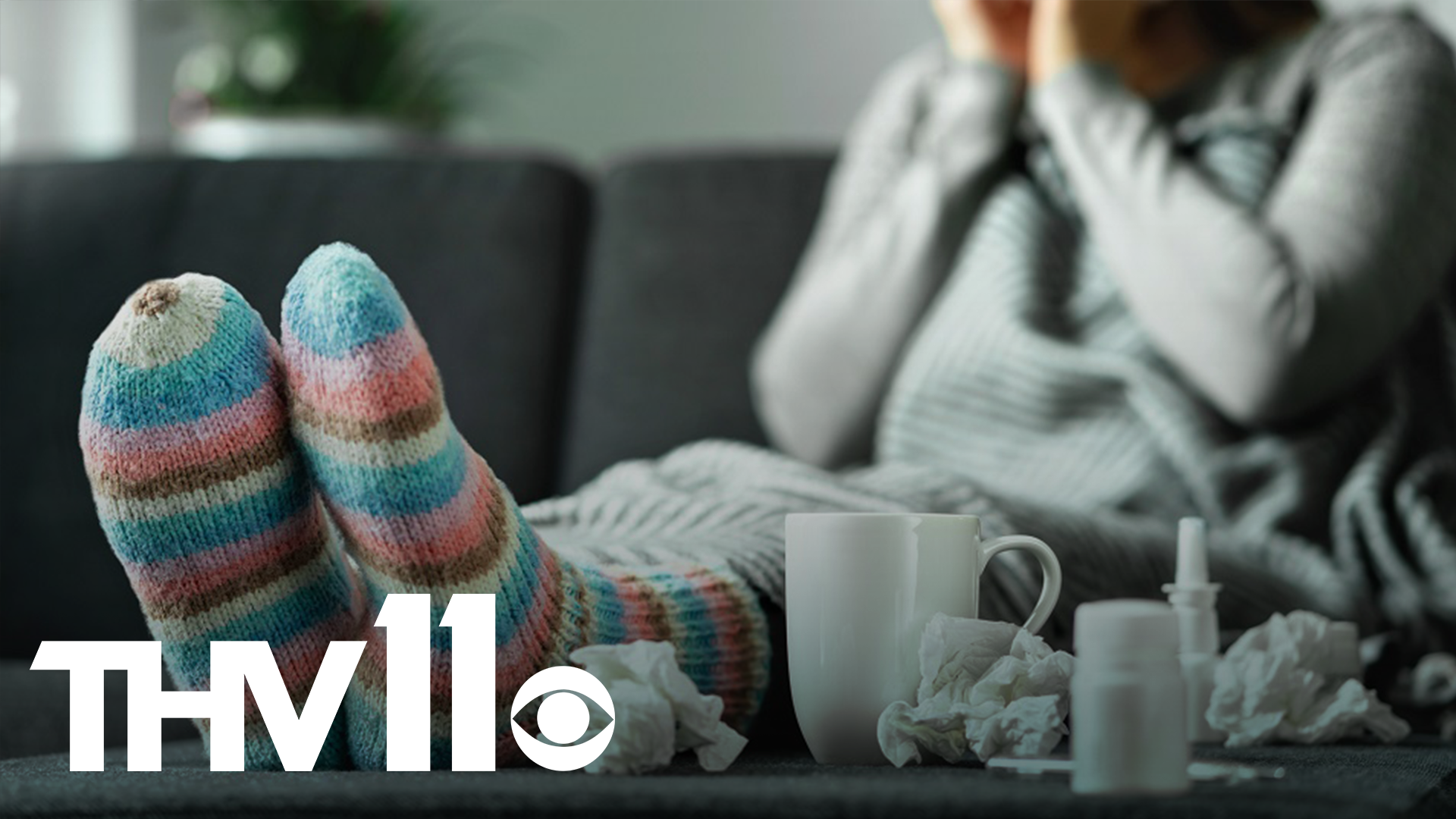LITTLE ROCK, Ark. — Not only is the Delta variant highly contagious, but doctors also say it can be more difficult to diagnose than other strains of COVID-19.
In many cases, Delta symptoms are different from more common COVID-19 symptoms.
According to data presented during the governor’s weekly briefing, the Delta variant currently accounts for more than half of Arkansas’ new COVID-19 cases.
When it comes to symptoms, doctors have noticed that not as many people are experiencing loss of taste and smell with Delta.
“The starting symptoms someone might have with the Delta variant more commonly are runny and stuffy nose, sore throat, and headache. Those are those more vague symptoms that all kinds of stuff can cause,” said Dr. Joel Tumlison an outbreak response physician for the Arkansas Department of Health.
While the original strain of the virus also caused those symptoms, Tumlison says people seem to notice them more often and earlier with the Delta variant. And that can make diagnosis tricky.
“It's easy to go ‘oh it's my allergies or oh it's just a little cold. It can't be coronavirus."’ Tumlison said. “It puts emphasis on if you've got symptoms – even if you think it’s just a sore throat – you need to get tested. Even if you think it's just a stuffy or runny nose and it doesn't have another obvious explanation, or even if you think it does, we want you to talk to your clinician and get tested.”
Tumlison says that advice goes for people who are vaccinated and unvaccinated. He also says people who have these symptoms should not go to work or spend time around others until they receive a negative COVID test result.
“Spread is increasing. Cases are going up, which means there are more active cases in different communities,” Tumlison said. “This is the time again to talk about it and encourage individuals to take measures to protect themselves.”
Those measures include getting vaccinated and wearing a mask if you have not gotten the shot.
According to Governor Asa Hutchinson, between 98 and 99% of people hospitalized with COVID-19 in Arkansas are unvaccinated.

